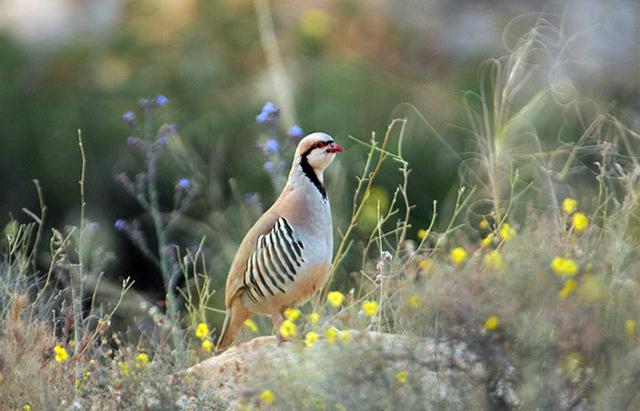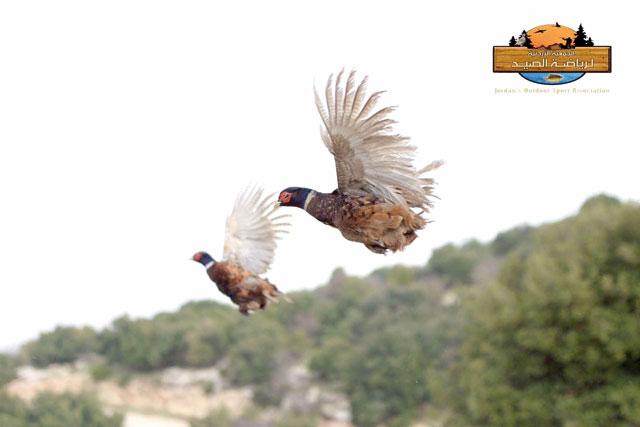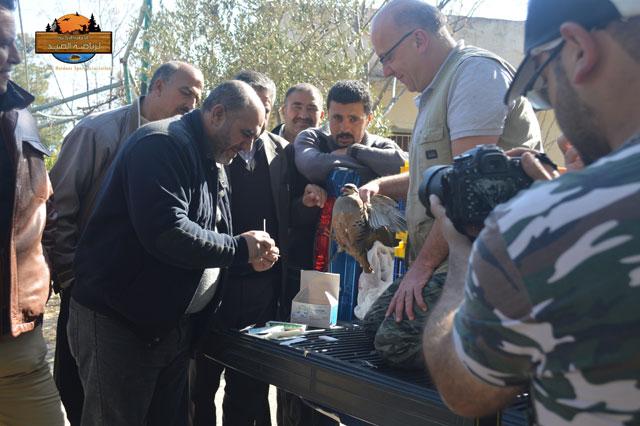You are here
Hundreds of sand partridges released into wild to counter extinction trend
By Hana Namrouqa - Jul 03,2018 - Last updated at Jul 03,2018

The Kingdom has been witnessed a declining trend of the game species recently (Photo courtesy of RSCN)
AMMAN — For the first time in three decades, authorities have released hundreds of sand partridges into the wild in an attempt to reverse a declining trend of the game species endemic to Jordan, according to a conservationist.
On Tuesday, the Royal Society for the Conservation of Nature (RSCN) released 600 sand partridges in various parts of the country, the head of the law enforcement section at the RSCN, Abdul Razzaq Hmoud, said.
A total of 150 birds were released in Dibbeen Forest Reserve during a ceremony held to announce the new initiative, while the rest of the birds were released into different undisclosed locations across the Kingdom.
“The release of the birds seeks to increase the numbers of sand partridges in Jordan, especially since studies show that the bird’s population is declining due to multiple factors,” Hmoud told The Jordan Times.
Jordan banned hunting of sand partridges and chukars in 2016 to protect the dwindling populations of the game birds. The ban, which is effective for three years across the Kingdom, will expire by the end of next year, according to the Ministry of Agriculture.
Studies indicate that the numbers of chukars and sand partridges in their natural habitat are declining due to several factors; mainly random hunting and the destruction of the birds’ habitats and nests by illegal hunters.
Furthermore, climate change and rising temperatures, which shorten the birds’ mating seasons, also threaten the survival of chukars and sand partridges, according to the RSCN, which has banned the hunting of chukars and sand partridges several times in previous years.
The society underlined that the drop of the birds' population is not only happening in Jordan, but has also been reported across the Mediterranean region, where hunting of chukars and sand partridges has been also banned.
The released sand partridges were secured from a facility supervised by the Royal Court and the Ministry of Agriculture for the reintroduction of indigenous wild bird species in Bergesh Forest in Ajloun Governorate, Hmoud said, noting that more birds will be released in the future.
During the release ceremony, the RSCN also invited hunters to participate in the project. “We invited responsible hunters to take part in the initiative because to sustain such an effort, you need to have hunters on board. Responsible hunters help spread the word and encourage their peers to avoid hunting endangered species and to abide by hunting regulations,” Hmoud highlighted.
Last January, Jordan’s Outdoor Sport Association released 850 partridges and pheasants in the Kingdom’s northern forests with the aim of reversing the decline in their numbers in the wild.
The release involved the fifth and sixth batch of partridges and the first and the second of pheasants.
Related Articles
AMMAN — Hundreds of pheasants and chukars, game birds highly prized by hunters, were reintroduced to their natural habitat to offset their d
AMMAN — A new population of chukar, a game bird highly prized by hunters, has been released into the wild to offset its dwindling numbers, a
AMMAN — The Ministry of Agriculture has banned hunting of chukar and sand partridges, two bird species that are highly prized by hunters, an


















